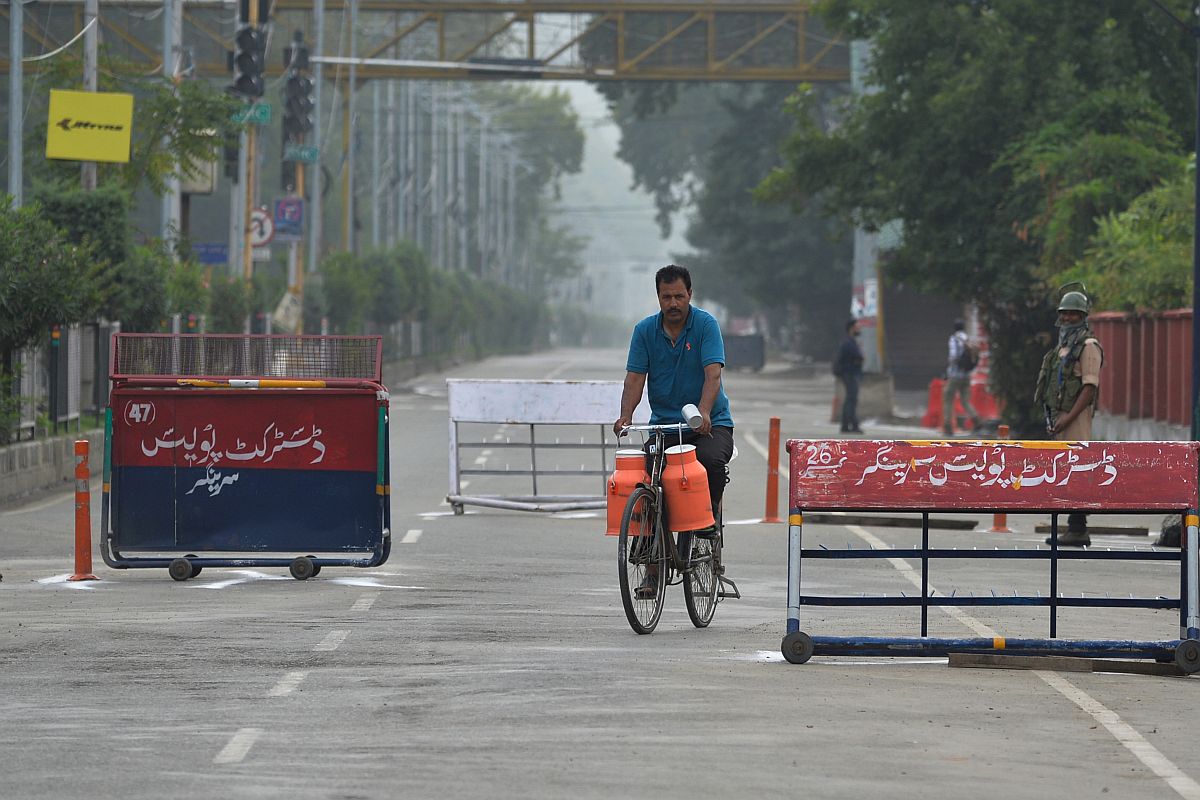Jammu and Kashmir government on Saturday informed that all postpaid mobile services will be functional from Monday 12 noon in the Valley.
The lifting of restriction on communication comes after over two months of abrogation of Article 370, that gave special status to Jammu and Kashmir.
Advertisement
“Mobile phone connections, to be specific, all postpaid mobile phone connections, irrespective of service provider, will resume from Monday – October 14th at noon. This will happen across the state, in all 10 districts of Kashmir,” Jammu and Kashmir Principal Secretary Rohit Kansal said at a press conference.
However, internet connectivity will remain suspended for now.
Kansal said that the restrictions were imposed to ensure that no life is lost due to externally aided terrorism. He also said that political leaders who have been detained will be gradually released, adding it was a “dynamic process”.
Jammu and Kashmir was put under virtual curfew on 5 August when the Modi government scrapped the Article 370 and split the state into two union territories.
Telephone line services, including mobile phones and landlines, were suspended in the early hours of August 5.
Earlier in September, the government had said that over 90 per cent of the geographical area of Jammu and Kashmir is free of restrictions.
On August 17, more than 50,000 landline phones were made operational after services in 17 exchanges of the Valley were restored after a period of about 12 days, as part of gradual easing of restrictions in a phased manner.
At least 400 politicians including former chief ministers Mehbooba Mufti and Omar Abdullah were placed under house arrest.
However, nearly after two months of detention, almost all political leaders of Jammu have been freed from house arrest. but their counterparts in the Kashmir Valley still remain under preventive detention.
The Government has affirmed that restrictions in Kashmir are aimed at preventing Pakistan from creating trouble through proxies and terrorists.
External Affairs Minister S Jaishankar had earlier justified the restrictions on phone and mobile services in Jammu and Kashmir saying that it was needed to stop communication between terrorists.
On detention of politicians, the Centre and the state government has said that it was done in accordance with the provisions of law to maintain law and order in the Valley.











